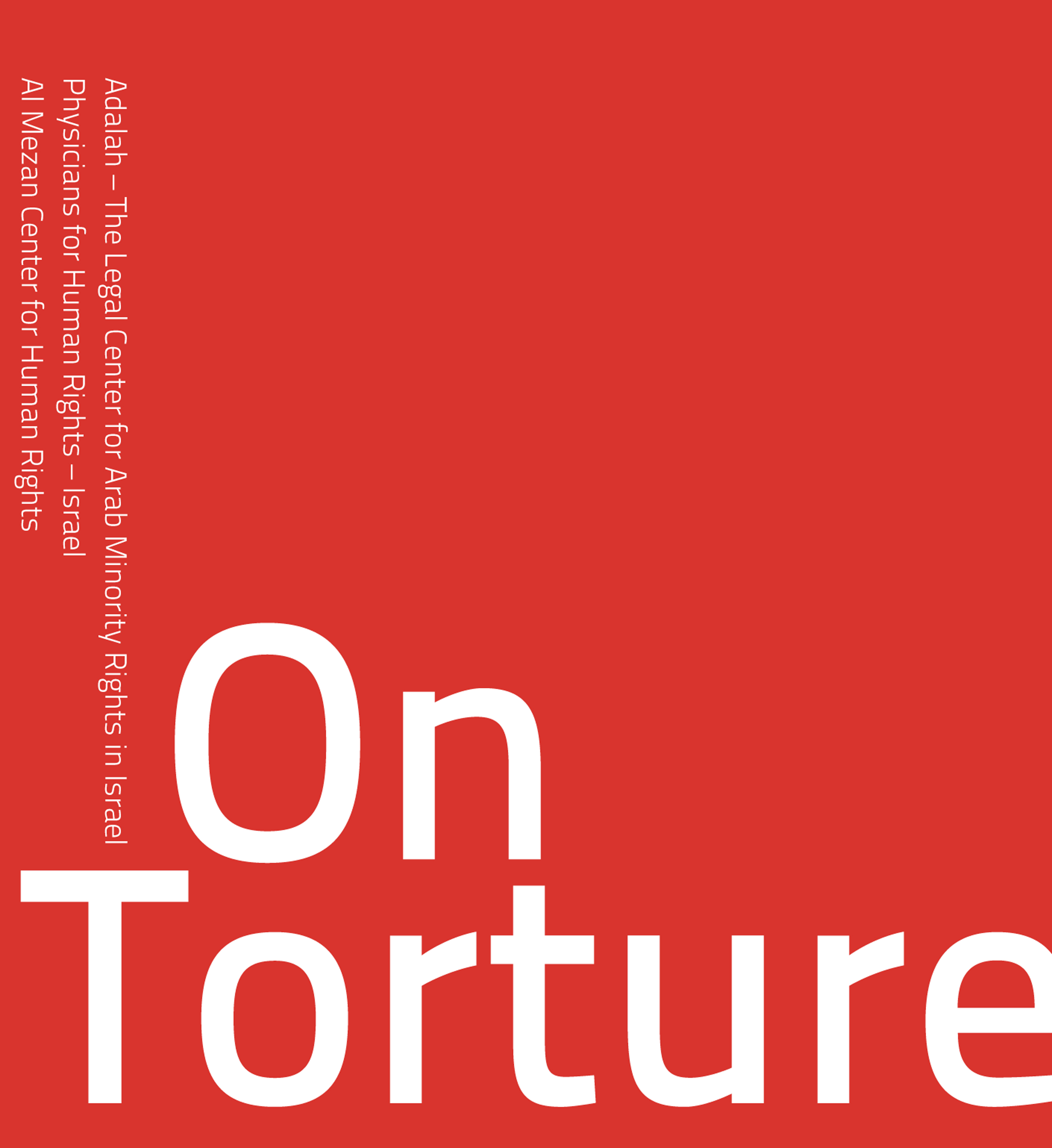Supreme Court rejects petition against GSS exemption from requirement to record interrogations with security suspect
Israeli Supreme Court Rejects Petition against Law Exempting GSS from Recording Interrogations of Security Suspects; Decision Completely Contradicts New Recommendations of Turkel Committee On 7 February 2013, the Supreme Court of Israel dismissed a petition (Excerpts in English) submitted by Adalah and other human rights organizations to cancel a sweeping exemption in law that allows the police and General Security Service (GSS) (Shin Bet/Shabak) not to make audio or video recordings of their interrogations of suspected security offenders. Former Adalah Attorney Abeer Baker filed the petition on 21 December 2010 in the name of Adalah and on behalf of the Public Committee Against Torture in Israel (PCATI), Physicians for Human Rights-Israel (PHR-I) and Al Mezan.
Israeli Supreme Court Rejects Petition against Law Exempting GSS from Recording Interrogations of Security Suspects; Decision Completely Contradicts New Recommendations of Turkel Committee
On 7 February 2013, the Supreme Court of Israel dismissed a petition (Excerpts in English) submitted by Adalah and other human rights organizations to cancel a sweeping exemption in law that allows the police and General Security Service (GSS) (Shin Bet/Shabak) not to make audio or video recordings of their interrogations of suspected security offenders. Former Adalah Attorney Abeer Baker filed the petition on 21 December 2010 in the name of Adalah and on behalf of the Public Committee Against Torture in Israel (PCATI), Physicians for Human Rights-Israel (PHR-I) and Al Mezan.
Chief Justice Asher Gronis justified the court’s decision (in English) on the grounds that the Justice Ministry committed to examining alternatives to the exemption by 2015 and that relevant ministries were working to clarify the law’s definition of security offenses. In its decision, the Supreme Court confirmed that the Knesset must amend the law, and stated that, “The legal text is under examination. Half a year has passed since the last amendment, during which time a new Knesset was elected. It is therefore necessary to wait until the law is amended.” However, the Knesset has extended the temporary order that grants the exemption to the policy and GSS continuously since 2002, and the state has not committed to make any fundamental modifications to it. Following the law’s latest extension in 2012, it is currently valid until July 2015.
The court’s decision in this case completely contradicts the recommendations published by the Turkel Committee – the official government-appointed committee set up to investigate the events of the Gaza Freedom Flotilla in May 2010. In its recommendations, the Turkel Committee clearly stated that there was a need to change the status quo, and to oblige the GSS to make audio and video recordings of its interrogations of security suspects. In addition, Yuval Diskin, former head of the GSS, testified to the Turkel Committee that he was in favor of recording interrogations. Read Adalah, PHR-I, and PCATI's analysis of the Turkel Report
The Criminal Procedure Act (Investigation of Subjects) – 2002 mandates the audio and video recording of interrogations in several cases, including in the cases of individuals suspected of committing serious offenses that are punishable by sentences of 10 years or more in prison. However, if the police or GSS classifies the individual as a security detainee, the requirement to record is dropped, no matter the charge or punishment. This exemption is grounded in Article 17 of the law, which does not, however, list the accusations that qualify as security charges. Therefore, the Shin Bet, which is in practice the relevant investigating authority, sees itself as completely free from the requirement to use video and audio documentation in such cases.
The police and GSS claim that they do not make audio and video recordings of interrogations in security cases to keep the special interrogation techniques they employ from being exposed. In response, the petitioners stressed that this excuse cannot be used to justify the blatant violation of suspects’ rights created by the failure to record the interrogations. They added that investigations should be subject transparency, oversight and accountability, and that anyone who uses certain interrogation techniques should be prepared to reveal them if needed, and should not try to obscure such techniques, so that it becomes no longer possible to evaluate their legality. The petitioners further argued that the arbitrary nature of the exemption from recording interrogations has many implications for individuals suspected of committing security offenses, over and above all the other dangerous restrictions that apply to their interrogations. The exemption also leads to blatant and unconstitutional discrimination against security suspects.
The petitioners also argued that the exemption stands in violation of Israel's obligation under article 2 (a) of the UN Convention Against Torture (CAT) to take measures to prevent acts of torture. By exempting the police and GSS from the duty to record these investigations, Israel also stands in violation of article 11 of the UN CAT, according to which each state party “shall keep under systematic review interrogation rules, instructions, methods and practices as well as arrangements for the custody and treatment of persons subjected to any form of arrest, detention or imprisonment in any territory under its jurisdiction, with a view to preventing any cases of torture.”
In May 2009, the UN Committee Against Torture expressed its sharp criticism of the sweeping exemption granted to the police and the GSS from making audio and video recordings of their interrogations of security suspects in its concluding observations on Israel. The committee stated that that “Video recording of interrogations is an important advance in protection of both the detainee and, for that matter, law enforcement personnel.” The committee further recommended that Israel should, “as a matter of priority, extend the legal requirement of video recording of interviews of detainees accused of security offenses as a further means to prevent torture and ill-treatment.” The Committee against asked questions of Israel concerning the lack of audio/video recording in its “List of Issues” posed to Israel in June 2012.
Read: New joint publication “On Torture”















